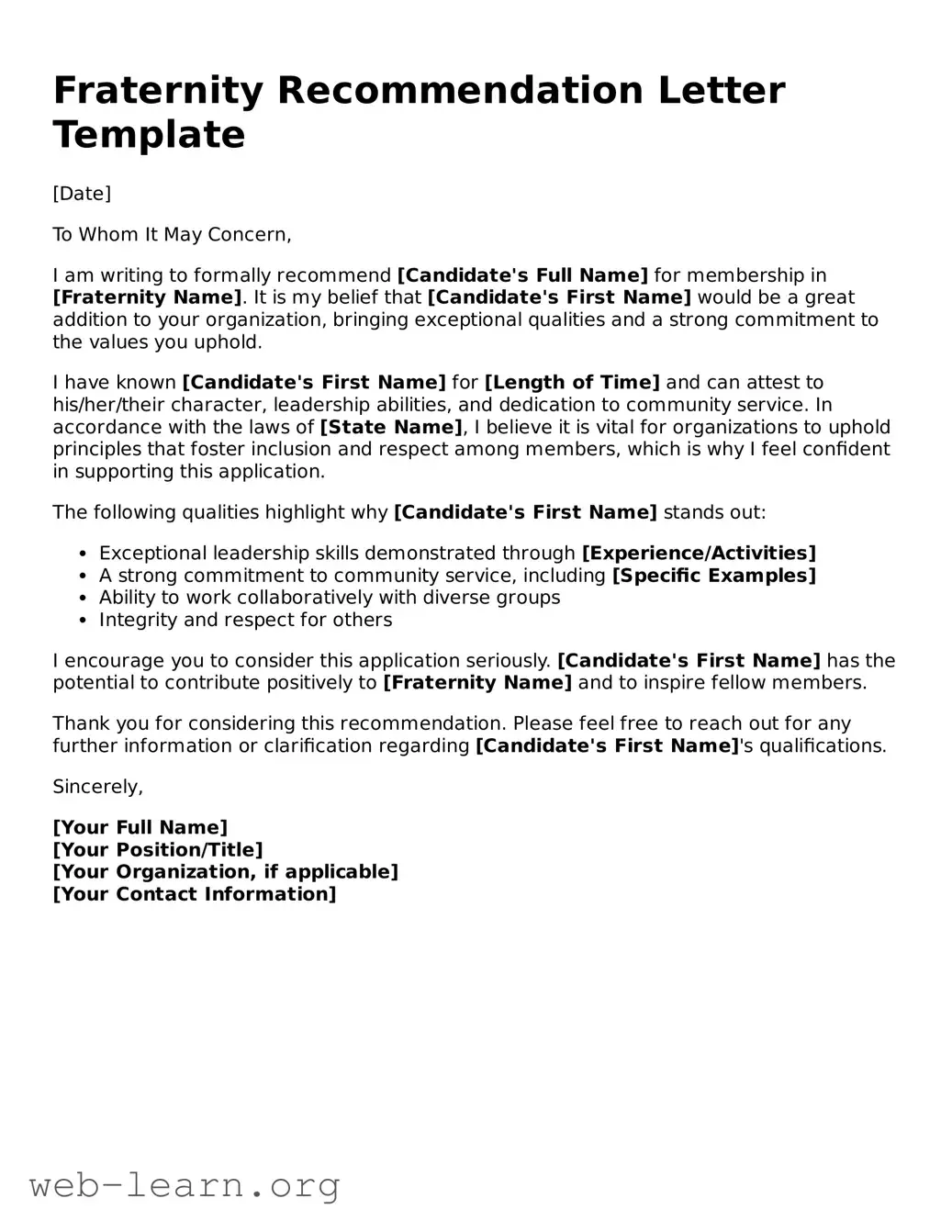When filling out a Fraternity Recommendation Letter form, attention to detail is crucial. Unfortunately, many people make common mistakes that can impact the effectiveness of their recommendations. One frequent error involves a lack of personalization. Generic statements do not capture the unique qualities of the candidate. Instead, each recommendation should reflect specific experiences and attributes.
Another mistake lies in overlooking the required information. Many recommenders fail to fill out sections completely, leaving essential parts blank. This could lead to delays in processing or even disqualification, so it’s important to ensure every field is addressed adequately.
Inconsistency in tone can also be problematic. Some letters swing between overly formal and too casual, which can confuse the reader about the candidate’s true nature. Maintain a consistent tone throughout the letter to paint a clear picture of the individual being recommended.
Additionally, failing to proofread can lead to spelling and grammatical errors, which may undermine the credibility of the recommendation. Taking the time to review the letter for mistakes demonstrates care and professionalism.
Providing vague assessments is another misstep often encountered. Instead of making broad claims like "he is a good leader," specific examples that illustrate this quality should be included. Specific anecdotes resonate more profoundly than mere descriptors.
Recommenders sometimes forget to connect the candidate's qualities to the fraternity’s values. It’s essential to align the candidate’s strengths with the fraternity's principles, showcasing a perfect match that can make the recommendation more compelling.
Moreover, including irrelevant information can distract from the key points. Sticking to relevant experiences and attributes ensures clarity and keeps the reader focused on what matters most.
Another common mistake is not adhering to word limits or formatting guidelines. When restrictions are provided, it’s important to follow them to avoid having your recommendation dismissed for not complying with the requirements.
Some individuals also neglect to sign the recommendation letter. A signature adds authenticity and personal touch, confirming that the letter is genuinely from the recommender.
Lastly, not submitting the letter before the deadline can be detrimental. Timeliness is critical in the recommendation process, so submitting on or before the required date shows responsibility and respect for the fraternity's timelines.
